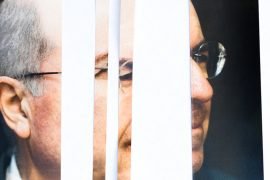[dropcap letter=”2″]
019, a year that we have begun to discover, as if it were a territory, will be a time marked by the rise of radical populism, the starting point of a new economic recession and the European elections conditioned by Brexit. This context of uncertainties and doubts will guide our state of mind towards pessimism; a pessimism that, like a dark lens of glasses, does not allow to see that the world, in spite of what it is thought, still goes much better than twenty years ago, and that we live in an era where it is easier to reinvent oneself, both on a personal and professional level.
Active solutions are often the result of creative initiatives such as inviting people from outside the company to assess the problem, to define the problem with words or to analyse the positive exceptions to the problem, that involves being open to different ideas
The prestigious Harvard Business Review devoted one of its latest numbers to establish twelve great ideas to reinvent oneself. Ideas or principles to move from paralysis and routine to action and change. The title of the paper can hardly be more direct: The essential in 2019, 12 great ideas to reinvent oneself. Among the proposals, it is essential to learn from what ever happened to us, to overcome our prejudices, to innovate safely and take advantage of the good problems. The most relevant observation appears in the last proposal, where it is asked the question: Is your company good / is it prepared to solve problems? 85% of the people who were consulted answered that unresolved problems have high costs for their businesses. The cause is that the diagnostic processes tend to be excessive, with a high amount of daily meetings.
Seeing things differently, in a positive way, also implies assuming that the world is not drifting away or collapsing, but that it is actually better than what we think: we all have a completely misguided view of the world
Active solutions are often the result of creative initiatives such as inviting people from outside the company to assess the problem, to define the problem with words or to analyse the positive exceptions to the problem, that involves being open to different ideas. The interesting thing about Harvard Business Review‘s proposals is that they take a bad problem as a challenge, to be transformed into a positive result. The proposal aims to promote the treatment of the problem so that it can lead to a solution, instead of generating immobility. Reinventing means confronting conflicts as a way to update our response. It is about moving from pessimism (there is no solution) to pragmatism: there is always a possible solution.
 Seeing things differently, in a positive way, also implies assuming that the world is not drifting away or collapsing, but that it is actually better than what we think. The book Factfulness by Hans Rosling is a clear example of this proposal based on not being ignorant of prejudices, of the biased information of the media, and neither becoming a victim of the fear of perceiving things as they are. We are aware that legal slavery (where forced labour is legal or practiced by the state) is only allowed in three countries; that the impact of oil disasters affecting the environment has been reduced from six hundred and thirty-six thousand tons of oil spills in 1979 to six thousand tons in 2016; that nearly every year the cases of smallpox in the world have been eradicated; that malnutrition in the world has moved from 28% in 1970 to 11% in 2015 or that children’s exploitation (5 to 14 years old) has dropped from 28% in 1950 to 10% in 2012. The exposed data do not correspond to the perceived global illusion that the world walks towards disaster. Hans Rosling puts us to the test and states that we live our lives with absolute ignorance about what surrounds us. Ignorance affects everyone, even those who are considered experts in the field. The author warns that, after asking experts by means of a questionnaire about issues such as poverty, ecological problems, education, the progress of democracy or global warming on the planet, he reached the following conclusion: “One of the worst results was obtained from a group of Nobel prizes and medical researchers. Apparently, we all have a completely misguided view of the world.”
Seeing things differently, in a positive way, also implies assuming that the world is not drifting away or collapsing, but that it is actually better than what we think. The book Factfulness by Hans Rosling is a clear example of this proposal based on not being ignorant of prejudices, of the biased information of the media, and neither becoming a victim of the fear of perceiving things as they are. We are aware that legal slavery (where forced labour is legal or practiced by the state) is only allowed in three countries; that the impact of oil disasters affecting the environment has been reduced from six hundred and thirty-six thousand tons of oil spills in 1979 to six thousand tons in 2016; that nearly every year the cases of smallpox in the world have been eradicated; that malnutrition in the world has moved from 28% in 1970 to 11% in 2015 or that children’s exploitation (5 to 14 years old) has dropped from 28% in 1950 to 10% in 2012. The exposed data do not correspond to the perceived global illusion that the world walks towards disaster. Hans Rosling puts us to the test and states that we live our lives with absolute ignorance about what surrounds us. Ignorance affects everyone, even those who are considered experts in the field. The author warns that, after asking experts by means of a questionnaire about issues such as poverty, ecological problems, education, the progress of democracy or global warming on the planet, he reached the following conclusion: “One of the worst results was obtained from a group of Nobel prizes and medical researchers. Apparently, we all have a completely misguided view of the world.”
These two editorial proposals can be useful to insist that a more positive view of our particular and general reality should prevail in 2019. Only by appealing to the data and not to our prejudices or lack of judgment we can stop being subject to an empty and false determinism. The world or our companies do not go badly due to what we suspect, but according to what we know; and what we do know today is that we have enough data to think that the future can be confronted with more optimism.



















